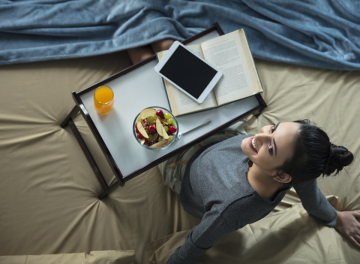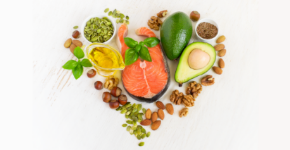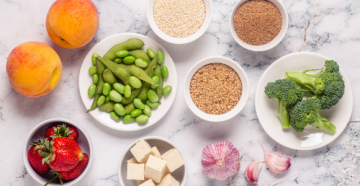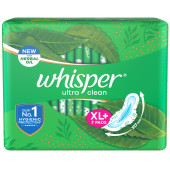Foods to Eat for A Better Period


While the wide discussion around periods tells you a whole lot about do’s and don’ts during adolescence, especially when you are on your period, however most pay little attention to the importance of ‘right eating’.This is essential because your diet directly impacts your hormones, where certain foods can aggravate cramping, mood swings, nausea, and bloating, while many other food products can help alleviate the symptoms making you feel better.
Foods before, after and during period
There are a number of foods which can help you have a healthy menstrual cycle. Let’s take a detailed look at what really happens to the body and know your foods for period and how a balanced diet is helpful.
The phase after ovulation lasts until the first day of your period, during which the estrogen levels drop, and the progesterone levels increase. This is shown on the outside as lower energy levels and an urge to slow down, with a few bouts of mood swings.Here we have outlined the best food for your period which help reduce cramps, cravings and bloating.
Like always, it’s best to reduce processed foods, foods with refined sugar, caffeine, salt which is sure to help you.Try and include fiber-rich food like almonds, dates, pears, and apples, which also work perfectly well as day long snacking options. Water is life! So, drink loads of water in the day, and avoid sugary drinks. You may add a few mint leaves to make it healthy.
What to eat during period?

Once you’ve started your period, you’ll have noticed feeling drained out with low energy levels. Hence, now, it’s important that you focus on foods which gives you more energy.Menstruation results in reduced iron levels, which may lead to anemia in women with heavy periods. Replenish your iron levels and up your B12 intake with red meat, fish, beans, chickpeas, raisins, milk, and cheese. These do sound like delicious options!
At the same time, cutting down on sodium intake can help tackle bloating during periods and the discomfort that accompanies.Fiber-rich fruits, nuts and almonds that are a great source for omega-3 and dark chocolate are options you could go for. Cook your meals with a slight increase in amount of turmeric, cardamom, ginger, coriander, and cumin – anti-inflammatory spices that give off a great flavor as well.
Food to eat during the end of your period

As your flow gets lighter towards the end, go for foods that helps estrogen production, the hormone responsible for boosting your mood and energy level. This is the time you will be at your emotional best, so it’s a good time to get active and increase your protein intake. Flax seeds are helpful in increasing your estrogen levels. Your appetite might likely decrease at this point of the month and so consuming smaller portions of healthy food is what you should try. If at all you had come across a healthy recipe but didn’t feel up to it at that time, now is when you can cook up a storm in the kitchen. Foods like spinach are a brilliant calcium-rich option for this week of your menstrual cycle.
However, along with all the high energy peaking currently, there are moments of stress and anxiety as well. To combat this, try meditating and relaxing your mind and body. Chamomile tea is known to have a soothing effect on the mind and body, so you can give that a try as well.
What not to eat during periods
As there are foods to eat during period that help in easing the pain and discomfort, you must also be aware of foods not to eat during periods that may worsen period symptoms. These generally include the variety that causes inflammation and bloating.
- Highly processed foods that are high in sodium or sugar
- Baked products as white bread and other bakery products
- Cauliflower or sprouts that cause gases
It is never only about one thing! Hence, the food you eat during the period and all that you do not eat during the period will influence how you experience your period symptoms. But what you need is a holistic approach for effective results – a balanced lifestyle with adequate sleep, physical activity, and moderate exercise coupled with a healthy diet will ensure a fuss-free and a happy menstrual cycle.





